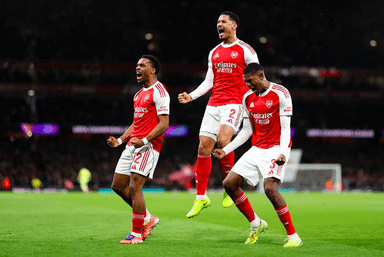
Famous referee Anthony Taylor gave an exclusive interview to Camel Live.
May 31, 2023, should have been one of the best days of Anthony Taylor’s life. He reached the pinnacle, becoming one of the few Britons to officiate a European club final. So he did something unusual: he brought his wife and adult daughters to watch the game.
They almost never watched his officiating, but this trip was supposed to be a family celebration. The Taylor family sat down at the Puskás Aréna in Budapest, feeling happy and proud. Then the match—the Europa League Final between Sevilla and Roma—kicked off. Everything was incredible: minor fouls, histrionics, objects thrown onto the pitch, and everyone on the bench protesting every call. When the referee’s decisions didn’t go their way, players would crowd around him.
“That wasn’t a surprise. I’d officiated Roma vs Feyenoord before, and back then the focus was on dealing with the home crowd’s behavior. But this was probably the hardest game I’ve ever officiated,” Taylor said.
After the 2023 Europa League Final, José Mourinho confronted Taylor in the parking lot. Taylor had to show 14 yellow cards and add nearly 30 minutes of stoppage time, and UEFA praised his handling of the chaos.
Referee assessors stated he made no mistakes. However, Roma’s manager José Mourinho waited for him in the stadium parking lot, shouting “fucking disgrace” as he walked toward the van Taylor was about to board.
The next evening, at Budapest Airport, the Taylor family was having coffee while waiting for their flight home—a budget flight.
Roma fans noticed Mr. and Mrs. Taylor, and soon more than a hundred fans gathered, forcing security guards to take the family to a side room. One fan pushed Taylor’s daughter from behind, and another threw a chair at them.
“Maybe I shouldn’t have taken my family with me,” Taylor reflected. “That experience wasn’t pleasant. They’ll probably never come to watch a high-stakes game like this again.”
But isn’t that sad?
“They don’t come to watch my games very often anyway. There are factors we can’t control, like flight delays. But in the end, what happened happened—and part of that was due to people’s behavior the night before.”
Taylor described the mixed feelings he had when flying back to Manchester with his family. He felt distressed about what they’d gone through and wished he hadn’t been the center of the incident. Yet there was also a sense of pride.
“Contrary to popular belief, I just don’t want attention. People have this weird idea that referees do things to annoy others or upset teams. We don’t. You never want to be the focus.
But on the other hand, deep down, you think: only a small number of referees get selected to officiate games as difficult as this.
And if it’s you, that’s a real honor,” he said, pausing and smiling , “Some might call that a masochistic outlook on life.”
I said no, it was understandable: the reward for getting through a tough experience is that sense of achievement.
“Well, the risks and rewards are both high,” Taylor said. “Because since that night, I haven’t officiated an Italian team’s game again.”
Has he been selected to referee Mourinho’s teams since then?
“No.”
Taylor chatted over coffee near his home in Altrincham. He decided to do the interview because Friday was World Mental Health Day—he wanted others to understand the inner pressures and processes of elite referees. Yes, one hope was that people might have a little more sympathy for referees, but another was to inspire others.
Taylor picked up the whistle because of his mother, who was a teacher. At 16, he was a typical teenager: he’d go to watch games in Altrincham with friends, then come home and blame the referee for the team’s loss. His mom said she was tired of hearing him complain—if he thought refereeing was easy, he should try it himself.
“You never know what’s going to happen, how the teams will perform, or if players will lose their tempers.
It’s best to keep an open mind. Before a game, he and his long-time assistant referees Gary Beswick and Adam Nunn share their concerns.
“You can’t go into a game thinking ‘I won’t make mistakes’—that puts unrealistic pressure on yourself.”
Years ago, on a wet pitch in Wythenshawe, players, coaches, spectators, and parents all shouted at him. In England, referees are treated like this in almost every game, starting from the youth levels.
“Honestly, trying to influence referees’ decisions is an outdated mind game, and it’s never been very successful. Look at how parents or coaches treat young players—Is it acceptable to shout abuse at kids under 18? In football, it’s almost taken for granted, because we want to win or score goals.”
In the middle of his life, he thinks the atmosphere at games has gotten worse.
“The pressure to win is huge, but the outcome of a game depends on many factors. It’s not just down to the referee, or VAR, or a manager’s tactical mistake, or a player missing a penalty.”
Yet this is an era of screenshots and scapegoats—Premier League fans around the world try to blame game results—and their anger—on individuals, moments, and details.
“We live in a world that demands perfection. That’s the biggest challenge facing elite football. In my 17 years in the Premier League, there’s always been pressure from scrutiny and performance demands, but things have changed for a variety of reasons. Technological changes have distorted the situation. The criticism and analysis aren’t just imbalanced for referees—they’re imbalanced for managers too.”
He gave the example of officiating the Chelsea vs Liverpool game last Saturday, when he faced heavy criticism for showing a red card to Enzo Maresca. Maresca had already been warned, yet he violated the Premier League’s Participants' Code of Conduct by rushing to the touchline to celebrate Chelsea’s winning goal.
“I wasn’t particularly happy to have to send him off for a second yellow card, but people choose to ignore that all Premier League clubs signed this code two years ago,” he said.




